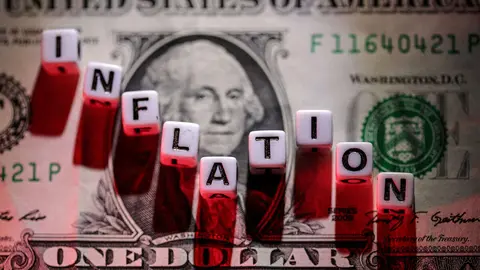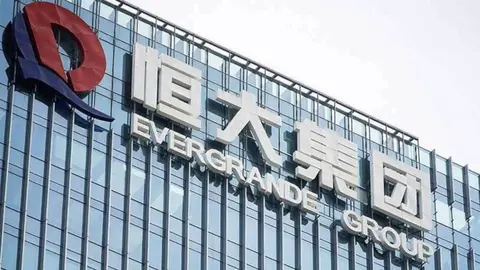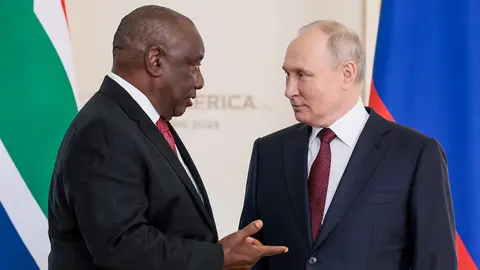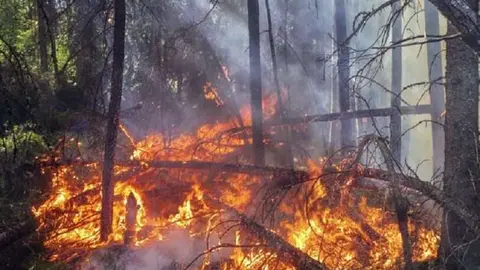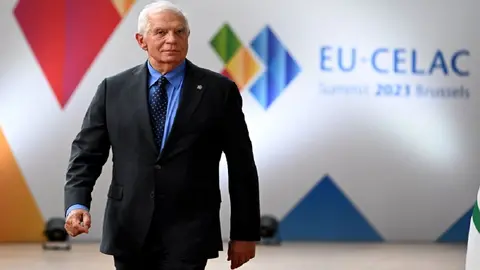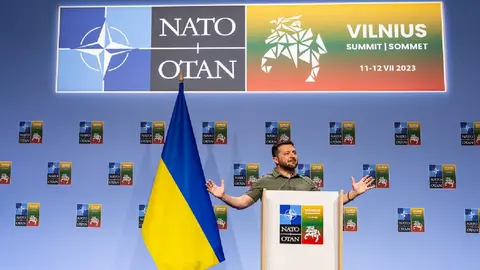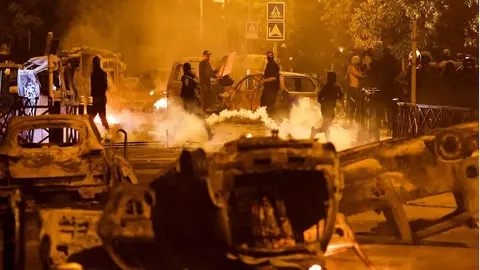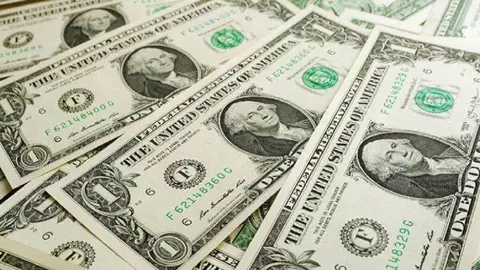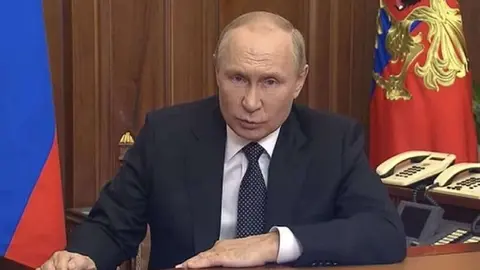International tensions overshadow the G20 Summit
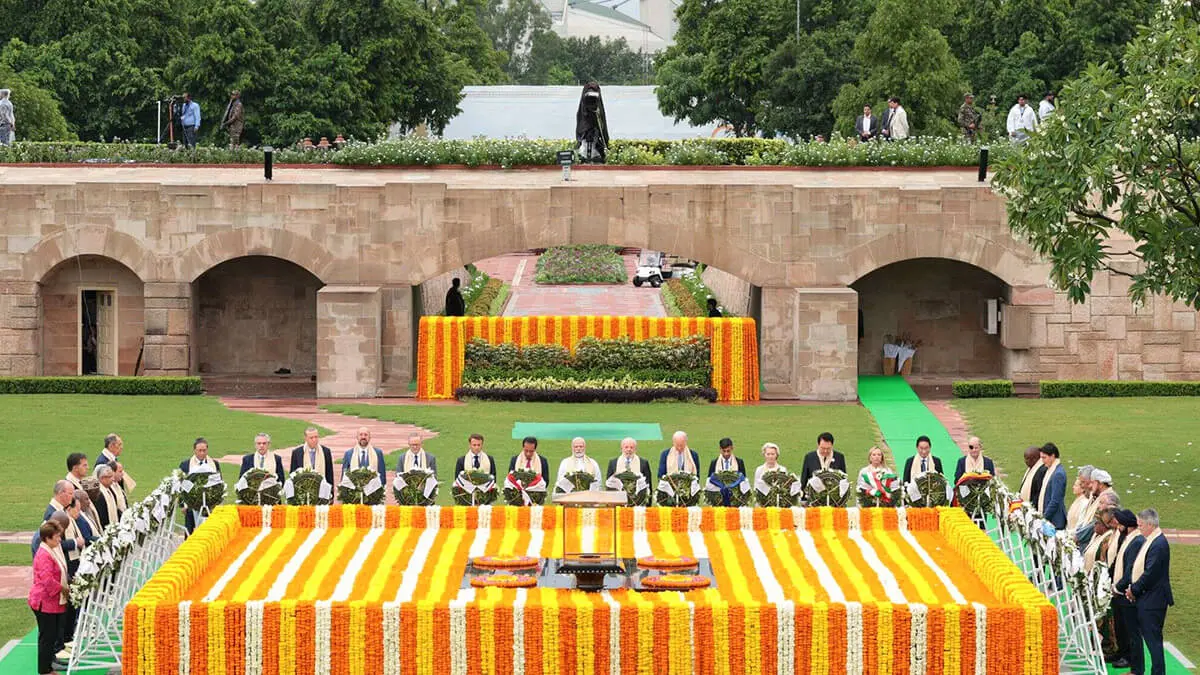
A G20 summit was held in New Delhi without Xi Jinping and a few days ago, the BRICS meeting in South Africa was not attended by Vladimir Putin, who was also absent from the meeting in India. The constant international tensions are dynamiting the multilateral events that allow world leaders to see each other, talk to each other and agree on everything from bilateral meetings or state visits to the extension of cooperation and business networks.
China and Russia blame the US for pursuing a hostile stance against them; tariff wars and tensions between Chinese chip industries and US industrial protection policies have long smouldered, while Russia's invasion of Ukraine has unleashed the largest ever wave of sanctions and vetoes against an invading country by a broad bloc of countries led by the US.
Ahead of the G20 conclave meeting in India, both Russia and Saudi Arabia, two of the world's leading oil producers and exporters, unveiled a series of additional cuts to their oil supply to the international market.
Brent, used as a benchmark to price more than three-quarters of the world's traded oil, has been rising since late June after Riyadh unveiled its crude oil production cuts. Last week it rose above $90 a barrel.
Oil prices have been under renewed upward pressure following the announcement by Russia and Saudi Arabia that between them they will stop supplying a total of 1.3 million barrels a day until at least next December.
West Texas crude oil, which is also used as a benchmark for the US market, has soared above $87.14 per barrel and could reach as high as $90 per barrel.
Riyadh's decision to extend its voluntary cut of 1 million barrels per day will be reviewed monthly because it intends to deepen and lengthen the cuts.
Meanwhile, Deputy Prime Minister Alexander Novak said Russia has again joined Saudi Arabia in extending Russian oil cuts until the end of the year, with 300,000 barrels per day less. Russia intends to cut oil exports by 500,000 barrels of oil per day at least until the end of next year.
According to the International Monetary Fund (IMF), Saudi Arabia needs Brent crude to trade at 81 dollars per barrel to balance its budget. Riyadh's ruling Saudi absolutist monarchy has slipped back into a budget deficit this year after reporting a surplus in 2022 for the first time in nearly a decade.
The Gulf state first announced its 1 million barrel cut after a June meeting between members of the Organisation of the Petroleum Exporting Countries, Russia and other smaller producers.
Recently, the IMF expressed some optimism about the economic outlook, after readjusting its global GDP estimates for this year: based on the performance of recent months, global growth could close this year at 3% GDP, an improvement of 0.2 percentage points from its April estimates.
However, if oil prices remain on a bullish streak, the impact on industrial and manufacturing output, as well as on the construction and transport industries, will be felt.
A few days before the G20 meeting, Chinese factory survey data showed modest growth in activity in the world's second largest economy last month, with some companies cutting staff as sales were weaker than expected.
With sanctions imposed by the United States and the European Union (EU), the United Kingdom, Australia, South Korea, Canada, Japan and other countries on Russia for its invasion and the EU's veto on Russian oil and gas purchases, both China and India have become the biggest buyers of Russian crude in 2022.
Chinese imports of Russian crude oil will soar by 8% in 2022, the equivalent of 1.72 million barrels per day, according to Chinese customs data, making Russia the second-largest supplier to the East Asian giant.
Kpler, a commodity market analysis firm, has estimated that China will import about 5.62 million barrels of oil per day in February, surpassing the previous record high.
"Chinese imports of Russian gas and liquefied natural gas in 2022 jumped 2.6 times and 2.4 times, respectively. Meanwhile, Chinese imports of Russian coal last year rose 20% to 68.06 million tonnes," according to Kpler.
In turn, India has become the largest customer for Russian oil, importing a record 1.4 million barrels of oil per day in January, an increase of more than 9 per cent since last year.
To China, India, but also Turkey, the Kremlin has been selling oil and gas at preferential prices since last year, and countries such as Pakistan and Bangladesh are reportedly interested in the same preferential treatment in exchange for buying more oil and gas from Russia.
Gavin Thompson, vice president of Asia Pacific energy at Wook McKenzie, points out that the oil and gas that Europeans have stopped buying from Russian companies is being pumped into Asia.
A questionable absence
While Chinese Foreign Ministry spokesman Mao Ning declined to answer the reason behind Xi Jinping's decision to skip the G20 meeting, it is clear that relations between China and India are not at their best due to their ongoing, pulse-pounding border disputes.
US President Joe Biden said he was "disappointed" that Xi planned to skip the G20 summit. "I'm disappointed ... but I'm going to see him, Biden told reporters without saying when a meeting with Xi might take place.
What are the reasons for Jinping not going to the G20 meeting? International media such as the Hindustan Times, Reuters and The Guardian point to a combination of reasons: 1) Beijing recently published a so-called "standard map" that sets out the territorial claim over Arunachal Pradesh, Aksai Chin, as well as Taiwan and the South China Sea. China releases the standard map every year, but this is the first time India has lodged a strong protest over the map's problems, rejecting the communist nation's claims. The timing of the map's release was somewhat surprising, coming as it did just days before the G20 Summit.
At the just-concluded BRICS Summit in Johannesburg, Prime Minister Narendra Modi had a brief interaction with Xi in which he expressed grave concern over the situation along the Line of Actual Control on its border with China.
Relations between China and India are strained over control of the border: three years ago, tensions resulted in a clash in the Ladakh region that killed 20 Indian soldiers. It turned into a long-running standoff in the rugged mountainous area, where each side has deployed tens of thousands of military personnel with artillery, tanks and fighter jets.
Wen-Ti Sung, a political scientist at the Australian National University, believes that Jinping's failure to attend the G20 meeting, just after attending the BRICS summit, is a sign that the Chinese leader is convinced that "the East is rising and the West is falling" and is also a clear show of solidarity with Putin.
Alfred Wu, associate professor at the Lee Kuan Yew School of Public Policy at the National University of Singapore, points out that Jinping's attitude seeks to impose his own international agenda first and foremost. "Anyone who wants to see him should visit him in Beijing".
India wants leadership
The leaders of the world's richest and most powerful countries have gathered in New Delhi, under the format of the G20, where the most developed countries converge with a group of so-called emerging countries, but with considerable economic potential.
This forum plays an important role in shaping and strengthening the global architecture and governance on all major international economic issues.
The bloc currently accounts for 80% of world GDP and 75% of international trade. Its members include: Argentina, Australia, Brazil, Canada, China, France, Germany, India, Indonesia, Italy, Japan, South Korea, Mexico, Russia, Saudi Arabia, South Africa, Turkey, the United Kingdom, the United States and the European Union.
For India it was the first time to hold such a meeting, under the theme Vasudhaiva Kutumbakam, which translates as The world is one family; a fundamental point for a country that persecutes same-sex partnerships.
Prime Minister Narendra Modi has been widely criticised for camouflaging the huge problems of poverty and marginalisation in a country that is already the most populous in the world. Slums and informal housing were dismantled and some 300,000 street vendors evicted from the capital to avoid international press attention.
Holding the G20 meeting has been like a platform for Modi's India: the prime minister is obsessed with portraying his country as a growing global power, even though it is one of the most socially and economically unequal in the world.
"For too long, India was seen as a country of a billion hungry stomachs. Now it is over a billion aspirational minds and two billion skilled hands," he told reporters back home ahead of the opening of the G20.
Many have speculated that India's decision to postpone its G20 presidency until 2023 was made to ensure it coincided with the run-up to next year's general elections, in which Modi and his Bharatiya Janata Party (BJP) government will seek a third term in office with foreign policy at the forefront of the campaign.
"In the 2024 elections, Modi wants to present himself as a global statesman, as the leader of a country that is respected and taken seriously by the international community," according to Happymon Jacob, professor of foreign policy at Jawaharlal Nehru University in Delhi.
Under India's presidency of the G20, the bloc has focused discussions around more lending to developing nations from multilateral institutions; reform of the international debt architecture; regulations on cryptocurrencies; and the impact of geopolitical uncertainties on food and energy security.
So far this year, the bloc has not issued any joint statements, as it is deeply divided over language referring to the war in Ukraine.
While Russia and China are against blaming Moscow for the war in Ukraine, Western countries, including the US, France and Canada, have sought strong condemnation as a necessary condition for a joint statement.


